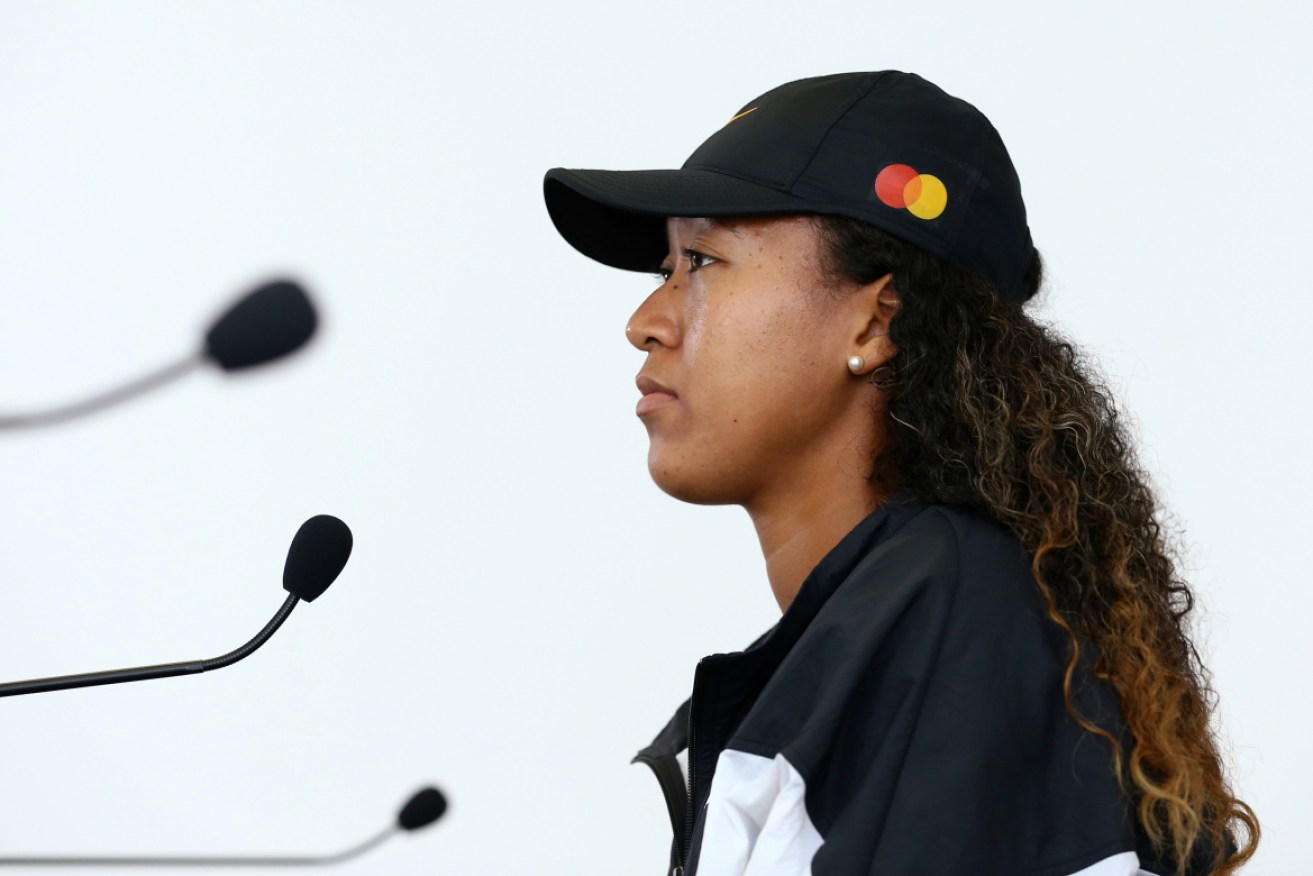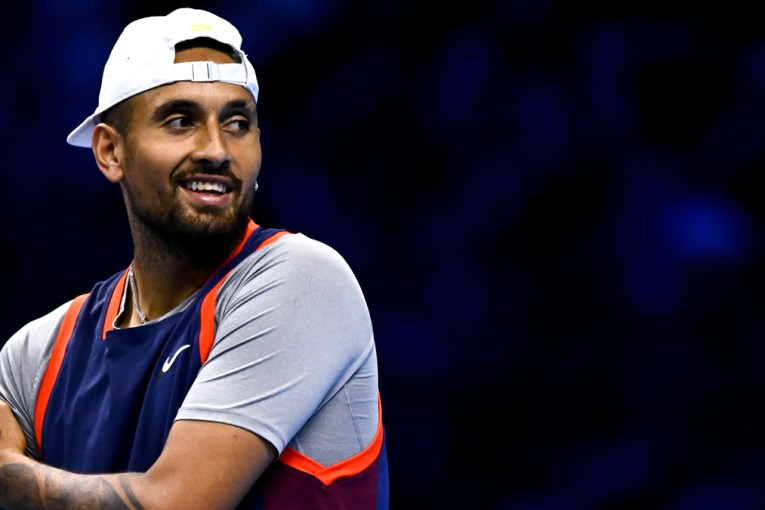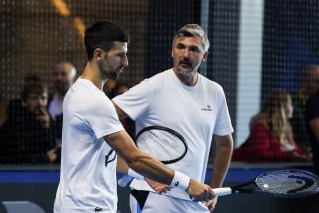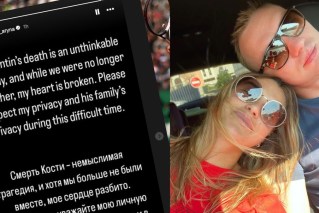Why tennis players hate post-match press conferences

Naomi Osaka has left the French Open after earlier refusing to speak at press conferences during the event. Photo: Reuters
I have a theory that you can predict how soon a tennis player will come in for their post-match press conference by how well or how badly they performed on court.
A good win? You’ll see them in about an hour.
A bad loss? “Benoit Paire will be in the main interview room in three minutes.”
I have not scientifically tested this theory.
There’s no doubt that post-match press conferences are, for the vast majority of players, an unwelcome chore.
After a loss, that chore becomes a tedious burden.
At grand slam tournaments, post-match press conferences are mandatory, whether a player wins or loses.
Naomi Osaka’s push to be the exception to that rule during the French Open has opened that requirement up to debate.
It’s not unusual for a player – particularly a losing one – to be in the main press room before he or she has even showered and changed clothes, so keen are they to have this final indignity over and done with so they can catch the next flight home.
Often, with the adrenalin still flowing after a difficult loss, a player will say something that they may live to regret.
Enter Bernard Tomic.
Bernie set the tone for his press conferences very early in his career.
Back in 2010, after losing to Marin Cilic at the Australian Open, in a match that finished after 2:00am, then-17-year-old Tomic slammed tournament organisers for scheduling his match so late in the day.
“I think it’s ridiculous,” Tomic said.
“Especially me, at my age.”
That set the standard for Tomic’s yearly crack at someone — anyone — upon exiting the tournament at Melbourne Park: Pat Rafter, Lleyton Hewitt, John Newcombe and even Dawn Fraser.

A young Bernard Tomic was not afraid to make his thoughts known at press conferences. Photo: AFP
Bernie’s Australian Open ritual now involves turning up, losing early, and setting a bonfire in the press room before flying back to his home in Monte Carlo.
When you’ve sat through enough of these press conferences as a journalist, you start to empathise with the players who are so visibly unexcited by the whole process.
Once the obvious questions are out of the way — How did you think you played? How’s the injury? What do you think about your next opponent? How hot was it? — things can get weird.
I will admit at times I have rolled my eyes at questions that have been asked of the player a dozen times before, blinked in disbelief at a query so personal as to be creepy, or nearly nodded off as a journalist laboured through a tactical theory so convoluted it would’ve been better explained on a whiteboard.
Tweet from @naomiosaka
And I don’t have to answer the question.
Apart from the verbal pitfalls, there are physical ones too, as Petra Kvitova discovered the hard way during her press duties at the French Open this week.
The Czech star fell and hurt her ankle while leaving a broadcast interview, and has had to withdraw from the tournament.
The press room can also deliver moments of absolute beauty.
There are journalists – actual tennis journalists – who know their turf and have the genuine respect of players.
There are players who take their media responsibilities seriously and deliver answers that genuinely broaden our understanding of the game.
At a big tournament, the press room can be a mix of seasoned tennis journalists, and local reporters who are dragged in to cover a sport that’s not usually on their radar.
That’s when you get the inane questions about petty episodes off the court, or the questions so obvious that you wonder why they had to be asked.
Journalist: You served really big today.
John Isner: Yes
And the repetition. Oh, god, the repetition.
If I had a dollar for every time I’d heard someone ask Serena Williams what it would be like to break Margaret Court’s Grand Slam record, I’d be richer than both of them.
Serena, and her sister Venus, learned early in their careers to tackle press conferences on their own terms.
Neither spends more time than is mandated in the interview room, and Venus in particular rarely offers more than a few words in response to questions she’s been answering for 25 years.
That’s how they’ve decided to play the game, and they are well within their rights to do so.
After losing in the first round at the French Open on Tuesday, Venus Williams gave a pretty candid insight into how she treats media inquisitions.
“I know every single person asking me a question can’t play as well as I can, and never will,” she said.
“So, no matter what you say or what you write, you’ll never light a candle to me, so that’s how I deal with it.”
Others are more willing to accommodate the whims of the press.
Not content with being perhaps the greatest male player of all time, Roger Federer is also arguably the best performer in the interview room, even after a loss.
After taking questions in English, he’ll switch to Swiss-German and start the whole press conference again.

Switzerland’s Roger Federer is one of the press room’s most accomplished performers. Photo: AP
Some players have learned that the press room is just another arena in which to do battle with their fellow pros.
After losing in straight sets to Goran Ivanisevic at the 1998 US Open, Australia’s Mark Woodforde used his post-match press conference to fire pot shots at the man who just beat him, saying he wouldn’t pay to watch the Croat who “had a serve and not much else”.
Ivanisevic had a crack at a return, and did not miss with his assessment of Woodforde’s game.
“Pretty old, can’t move, with that shitty backhand you can’t beat anybody,” he told journalists.
“If I have a son, just show Woodforde picture — you can’t play tennis like him.”
As far as press conference technique goes, if it was any more textbook it would have been in a university library.
Throughout his career, American Andy Roddick was generally one of the better performers in the press room. Thoughtful and analytical, with a knack for finding humour in the most difficult circumstances.
After losing to Roger Federer 6-4 6-0 6-2 at the 2007 Australian Open, Roddick produced more than a few winners in the interview room.
Journalist: What was it like for you just being there at the end of that?
Roddick: It was frustrating. You know, it was miserable. It sucked. It was terrible. Besides that, it was fine.
Journalist: What did Jimmy (Connors) say to you straight after the game?
Roddick: He gave me a beer.
Journalist: Can you just take us from 4-All on. Up to 4-4, you’re in the match. Then you got broken.
Roddick: Yeah, I got broken. Then I got broken three more times. Then I got broken two more times in the third set. Then it was over 26 minutes later. Is that what you saw, too?
Journalist: How much would you have paid in order not to come to this press conference tonight?
Roddick: That’s about the best question that’s been asked.
It’s probably a question many professional tennis players are now asking themselves: How much would I pay to never have to do this again?








